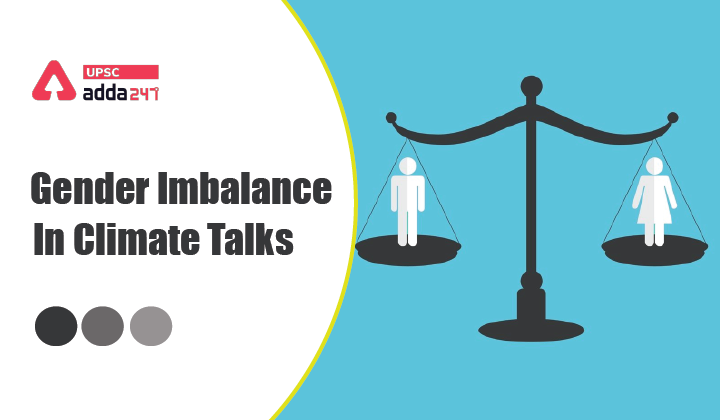Why in News?
Only 17% of the Indian delegation at the recently concluded COP26 climate summit were women.
Worldwide View:
- India’s proportion is lower than 169 other countries of the 195 that attended.
- Since the first COP summit in 1995, India has sent four all-male delegations (COP3, COPS, COP6.2 and COP7).
- The proportion of women in the Indian delegation, at 33%, was highest during COP23 and COP25.
- Overall, women are underrepresented in most country delegations.
- At COP26, women constituted more than 50% of country delegations in only 35 of the 195 nations.
- Nearly half of the countries had less than 33% female delegates.
Why Women’s Unequal Participation is a matter of great concern?
- Women commonly face higher risks and greater burdens from the impacts of climate change in situations of poverty, and the majority of the worlds poor are women.
- Women’s unequal participation in decision-making processes and labour markets compound inequalities and often prevent women from fully contributing to climate-related planning, policy-making and implementation.
- Women can play a critical role in response to climate change due to their local knowledge of and leadership in e.g. sustainable resource management and/or leading sustainable practises at the household and community level.
- Women’s participation at the political level has resulted in greater responsiveness to citizens’ needs, often increasing cooperation across party and ethnic lines and delivering more sustainable peace.
- At the local level, women’s inclusion at the leadership level has led to improved outcomes of climate-related projects and policies.
- On the contrary, if policies or projects are implemented without women’s meaningful participation it can increase existing inequalities and decrease effectiveness.
What can be done?
- It is important to ensure equal space and resources for women and men to participate in climate change decision making and action at all levels.
- Climate finance should be accessible to both men and women and designed to generate mutual benefits, not exacerbate patterns of inequity.



 TSPSC Group 1 Question Paper 2024, Downl...
TSPSC Group 1 Question Paper 2024, Downl...
 TSPSC Group 1 Answer key 2024 Out, Downl...
TSPSC Group 1 Answer key 2024 Out, Downl...
 UPSC Prelims 2024 Question Paper, Downlo...
UPSC Prelims 2024 Question Paper, Downlo...





